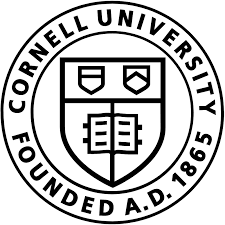
The Structural Transformation of African Agriculture and Rural Spaces (STAARS) fellowship program, a multi-institution collaboration managed by Cornell University in collaboration with the World Bank’s Development Research Group, and the Partnership for Economic Policy (PEP), announces its annual call for research proposals. Early-career researchers selected as STAARS Fellows in 2024 advance rigorous, policy-oriented research on the causal determinants of productivity and income growth, asset accumulation, rural employment and risk management in African agriculture and rural spaces.
The Fellowship covers travel and training expenses. STAARS Fellows will be paired with faculty, senior research staff, or affiliated researcher mentors from Cornell University, the World Bank, or PEP, with whom they will jointly author a paper on a topic of mutual interest relating to structural transformation in Africa south of the Sahara. The program aims for publication of resulting research findings in high quality, peer-reviewed journals and as working papers. In addition, the World Bank, PEP, and Cornell will facilitate Fellows’ participation in scientific and policy conferences, provide professional development training, and build Fellows international research networks.
The STAARS Fellowship began in 2016 and to date has supported 70 Fellows from diverse backgrounds.
Scope of Research and Geographic Focus
Prospective STAARS Fellows are invited to develop proposals in the following thematic areas for empirical work on Africa south of the Sahara:
- Dynamics of agricultural inputs use, technological change, and productivity growth.
- Rural factor (e.g., credit, labor, land) and product market performance and links to urban markets.
- Agri-food systems and value chains, their performance and evolution.
- Food security, nutrition, health and education linkages.
- Poverty dynamics, risk management and resilience against shocks.
- Sustainable natural resources management.
- Gender and marginalized groups.
STAARS Fellows’ rigorous policy analysis should use existing data, such as the Living Standards Measurement Study – Integrated Surveys on Agriculture (LSMS–ISA), Demographic and Health Surveys or similar high-quality datasets from Africa south of the Sahara. STAARS does not fund new data collection.
About Cornell University
Agriculture was a major catalyst for Cornell University's creation in 1865. As the Civil War was raging in 1862, the federal Morrill Act set aside federal land to either be used or sold by states in order to endow public universities that would provide education to the working classes in both liberal arts and practical subjects such as agriculture, the mechanic arts - now known as engineering - and military tactics. These universities would become known as "Land-Grant" universities. The idea, noted Morrill years later, was to "offer an o... read more

Structural Transformation Of African Agriculture & Rural Spaces (STAARS) Fellowship
| Application Deadline | 19 Jan 2024 |
| Type | Fellowship |
| Sponsor | Cornell University |
| Gender | Men and Women |
Aim and Benefits of Structural Transformation Of African Agriculture & Rural Spaces (STAARS) Fellowship
The selected applicants will receive funds to cover travel and participation in a three-week mentorship program at Cornell University or the World Bank (based on mentorship). The remainder of the research coordination and professional development training will be conducted virtually. Fellows are expected to commit significant time to the proposed research and capacity development activities. A modest honorarium will be provided to each Fellow. No salary support is available; STAARS will not cover the scholar’s time allocated to this research. A letter of support from the candidate’s current advisor/supervisor/or manager is required, explicitly indicating that adequate work time will be made available for full participation in the program, if selected. The program cannot support costs for any new data collection.
Requirements for Structural Transformation Of African Agriculture & Rural Spaces (STAARS) Fellowship Qualification
The call is open to early career researchers, either Ph.D. students in their final year prior to degree completion or preferably those who completed their Ph.D. no earlier than 2018. Priority is given to researchers who have earned at least one degree from an African university, plan to work professionally in low- and lower-middle income countries, and have proposals relating to the research themes indicated above. Qualified female researchers are particularly encouraged to apply. STAARS welcomes applications from fresh Ph.D. graduates who can benefit from mentorship and additional training to become internationally respected and recognized researchers. Fellows are expected to complete the proposed project by submitting findings as a draft working paper by December 13, 2024, and proceeding to submit the paper to a peer-reviewed journal and/or conferences by June 30, 2025.
Researchers are expected to be familiar with and have demonstrated access to existing data sets and have a strong working knowledge of appropriate software, typically Stata and/or R, and an interest in econometric analysis of high-quality data sets. Knowledge of geo-referenced data and GIS software to manage them is an asset.Knowledge of Stata and/or R will be assessed at the finalist stage.
Application Deadline
January 19, 2024How to Apply
A recording of our December 12th information session can be found here and the slides here.
The STAARS Fellowship application process is managed by Cornell University, in collaboration with the World Bank and PEP. Applicants must prepare a maximum 2500-word research proposal, which motivates the selected research issues and objectives, outlines data sources and proposed methodology, and contains a convincing plan for completing the project by June 30, 2025. Projects that propose to use data that are not publicly available must provide documentation that they already have access to those data. All proposals shall be prepared in English. All proposals will be peer-reviewed by experts from Cornell, the World Bank, and/or PEP. Shortlisted applicants will be required to attend a short, virtual interview with the STAARS leadership team and potential mentors and complete a Stata/R assessment to assess their qualifications in using statistical software necessary to carry out their proposed work. More details will be provided to shortlisted candidates at the time of notification.
The deadline to submit a research proposal is January 19, 2024 at 11:59 PM New York time. Applicants should submit their completed proposals via the STAARS online application link. A worksheet that outlines the questions and can be used to collect answers prior to submitting online can be found here. Accepted applicants will be notified by mid-March 2024 and are expected to begin remote collaboration with their mentor and be prepared to join launch activities immediately upon acceptance. Any questions about the application process or program should be directed to [email protected].
For more details, visit Cornell University website.

